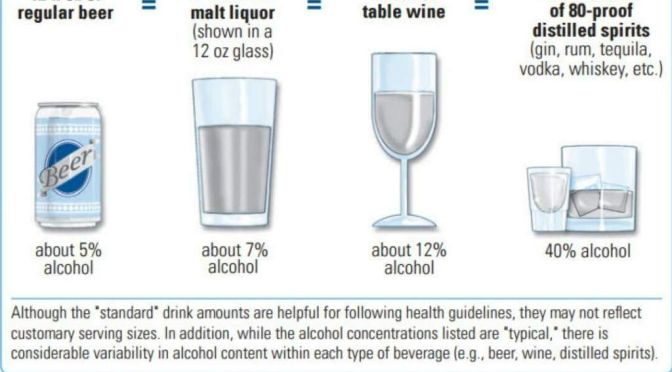Driving under the influence (DUI) remains one of the most heavily penalized traffic offenses across the United States. However, the specifics of DUI laws vary considerably from one state to another. Understanding these distinctions is essential, especially for drivers traveling between states or dealing with cross-jurisdictional DUI charges.
In 2025, California DUI law and Texas DUI law continue to showcase two distinct legal philosophies: California leans toward rehabilitation and education, while Texas enforces stricter punitive measures, particularly for repeat offenders. Knowing these differences can help drivers protect their rights, avoid costly mistakes, and better navigate complex legal processes.
Blood Alcohol Concentration (BAC) Limits
Both California and Texas set the legal Blood Alcohol Content limit at 0.08% for drivers over the age of 21. However, Texas enforces stricter standards for commercial and underage drivers, with lower thresholds depending on license type and age bracket.
California’s DUI laws also extend to drug-impaired driving, applying to drivers under the influence of prescription, over the counter, or illicit drugs. Texas primarily focuses on alcohol impairment but can prosecute drug-related cases under separate statutes.
First-Time DUI Offenses
A first DUI offense carries significant consequences in both states, but the penalties differ in intensity and focus.
California:
- Fines between $390 and $1,000
- Mandatory DUI education program
- Four-month license suspension (restricted license available for work/school)
- Possible probation with community service or ignition interlock device installation
Texas:
- Fines up to $2,000
- License suspension from 90 days to 1 year
- Jail sentence from 3 to 180 days
- Community service and alcohol education requirements
While both states impose strict consequences, Texas tends to deliver harsher immediate penalties, especially in terms of fines and potential jail time.
Repeat DUI Offenses
Repeat or subsequent DUI offenses escalate penalties quickly—and the severity varies sharply between the two states.
- Higher fines and longer license suspensions for second or third offenses
- Probation periods extended for multiple years
- Felony charges may apply for third or subsequent convictions
- Mandatory minimum jail sentences
- Second offenses: Fines up to $4,000, jail time from 30 days to 1 year
- Third offenses: Felony charges potential with 2–10 years in prison
- Repeat offenders with aggravating circumstances (e.g., child passengers) face enhanced sentencing
Bottom line: Texas takes a distinctly tougher stance on repeat offenders compared to California’s rehabilitative model.
License Suspension and Ignition Interlock Requirements
California:
- Four-month suspension for first-time offenders
- Eligibility for restricted licenses during suspension
- Ignition interlock devices (IID) may be mandatory, even for a first offense
Texas:
- Suspension periods start at 90 days but can extend to two years for repeat offenders
- Hardship licenses available under certain conditions
- IIDs are commonly mandated for repeat or aggravated offenses
Both states heavily monitor repeat DUI drivers through IID programs, ensuring compliance and safety.
DUI Laws for Minors and Commercial Drivers
Underage and commercial drivers face much stricter standards in both California and Texas.
- Under 21: Both states have zero-tolerance policies, where any detectable alcohol level can result in a DUI charge.
- Commercial drivers: Both states enforce a 0.04% BAC limit. A DUI offense can lead to disqualification or permanent loss of a commercial driver’s license (CDL).
For employers, understanding these rules helps prevent liability and ensures federal and state compliance.
Drug-Impaired Driving
This is an important divergence between the two states.
- California: Explicitly includes drug impairment under DUI law. Police may order blood or urine tests to confirm the presence of intoxicating substances, including prescribed or legal drugs that affect driving ability.
- Texas: Prosecutors rely on separate statutes for drug-related cases, focusing primarily on alcohol-based impairments.
The difference in how drug DUI cases are handled can heavily affect the type of evidence required and potential defense strategies.
DUI Enforcement and Court Procedures
Field Sobriety and Chemical Testing:
Both states employ standard field sobriety tests. However, Texas law enforcement tends to mandate chemical (breath or blood) testing more aggressively. Refusal can trigger an immediate administrative license suspension.
In California, refusal results in license suspension as well but often opens the door to rehabilitation-focused programs.
Court Approach:
- California: Rehabilitation, probation, diversion, and education are key sentencing tools.
- Texas: Courts emphasize punitive measures—longer jail time, mandatory fines, and stricter probation terms.
Interstate DUI Arrests
Both states participate in the National Driver Register (NDR). This means a DUI Drunk driving conviction in one state can affect your driver’s license in another. If you live in California and are arrested in Texas (or vice versa), both states can take reciprocal administrative action—potentially suspending your home state license as well.
Which State Has Harsher DUI Laws?
In general, Texas enforces harsher immediate penalties, while California prioritizes rehabilitation and driver reeducation programs. Although both states aim to deter impaired driving, Texas’s emphasis on punitive fines and jail time makes it the tougher jurisdiction for DUI offenders.
Your experience may vary based on:
- Offense history
- BAC level at arrest
- Presence of aggravating factors
Legal Representation and Defense Strategies
If you or someone you know faces DUI charges, consulting an experienced DUI attorney can significantly influence the case outcome. Skilled lawyers can help reduce penalties, contest evidence, and prepare defense strategies tailored to state-specific laws.
Qualified legal experts include:
- California drunk driving lawyers experienced in DUI defense and reinstatement processes
- Multi-state DUI lawyers skilled in cross-jurisdiction defense
Early legal representation is often the difference between a jail sentence and reduced penalties.
Final Thoughts
Navigating California DUI law vs Texas DUI law in 2025 requires understanding how each state approaches impaired driving. Both states maintain zero tolerance for drunk or drug-impaired driving but differ in philosophy and enforcement.
- California: Rehabilitation, education, and safety-first license restrictions
- Texas: Swift punishment, higher fines, and stricter repeat offender laws
Being aware of these differences can help drivers stay compliant, minimize legal exposure, and protect their driving privileges when traveling or relocating between states.

